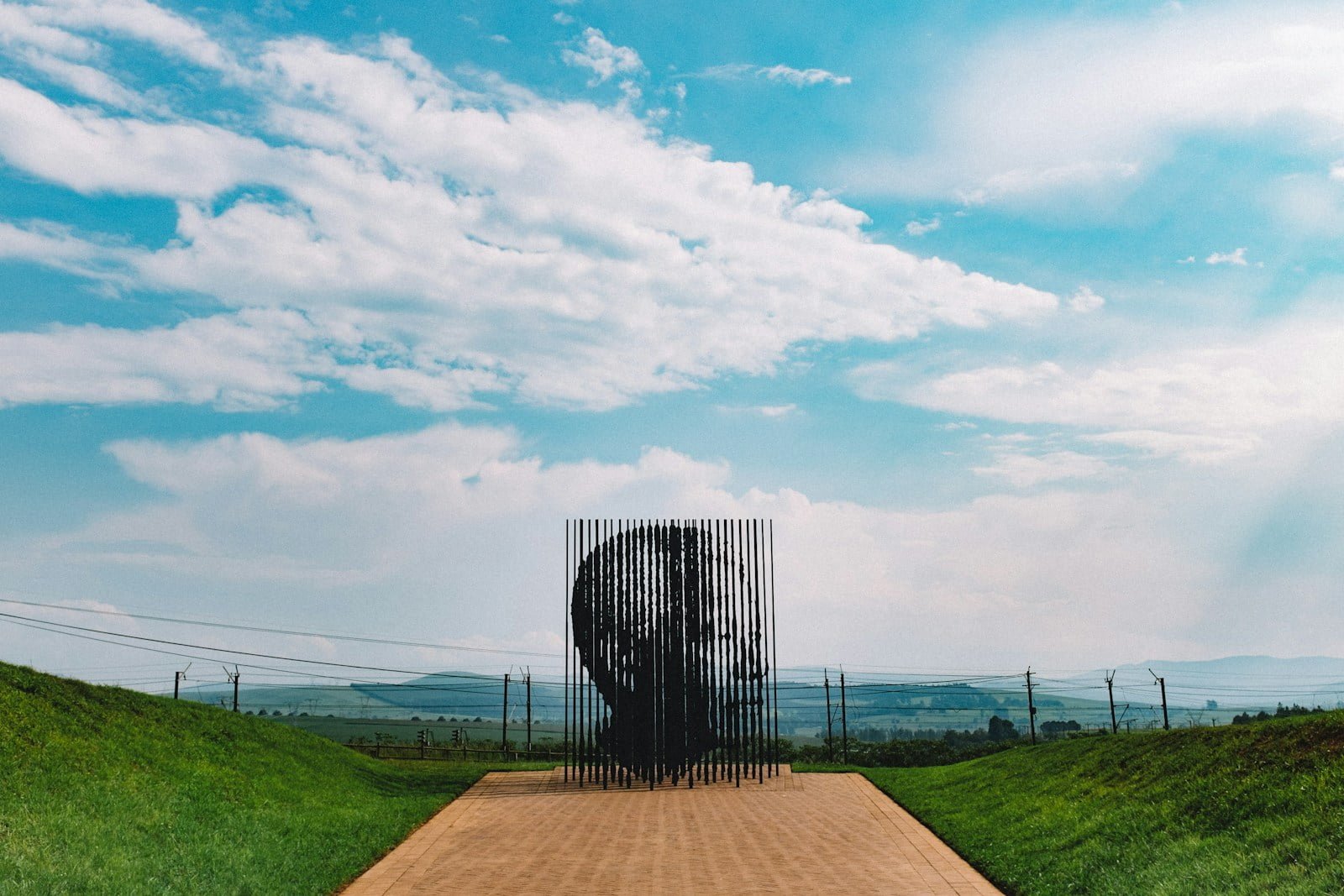
The International Day of UN Peacekeepers is a globally recognized observance dedicated to acknowledging the commendable efforts of United Nations peacekeepers. Celebrated annually on May 29th, this day serves as a tribute to the invaluable contributions made by men and women who serve in UN peacekeeping missions. The date was selected to commemorate the establishment of the United Nations Truce Supervision Organization (UNTSO) in 1948, the first-ever UN peacekeeping mission mandated to monitor the ceasefire between Israel and its neighboring Arab states.
Table of Contents
Hello Note
The significance of the International Day of UN Peacekeepers extends beyond mere commemoration. It is an opportunity to honor the bravery, dedication, and sacrifices of peacekeepers who work tirelessly in some of the world’s most volatile and challenging environments. These individuals risk their lives to maintain peace and security, protect civilians, support the rule of law, and promote human rights. Their work not only stabilizes conflict zones but also lays the groundwork for sustainable peace and development.
The observance also serves to raise public awareness about the vital role of UN peacekeepers in global peacekeeping and conflict resolution. It highlights the complex and demanding nature of peacekeeping operations, which often involve multidimensional tasks ranging from military operations to humanitarian assistance and capacity-building efforts. By recognizing the contributions of peacekeepers, the international community underscores its commitment to upholding peace and security worldwide.
Moreover, the International Day of UN Peacekeepers provides a platform for reflecting on the evolving challenges and achievements of peacekeeping missions. It is a moment to acknowledge the advancements made and to consider the improvements needed to enhance the effectiveness of peacekeeping efforts. As we honor the legacy of those who have served and continue to serve, this day reminds us of the collective responsibility to support and strengthen international peacekeeping initiatives.
The history of UN peacekeeping dates back to 1948, when the United Nations deployed its first mission, the United Nations Truce Supervision Organization (UNTSO). This mission was established to monitor the ceasefire between Israel and its neighboring Arab states following the 1948 Arab-Israeli War. The success of this mission set a precedent for future peacekeeping operations, marking the beginning of a new era in international conflict resolution.
One of the key milestones in the evolution of UN peacekeeping was the Suez Crisis in 1956. The United Nations Emergency Force (UNEF) was created to address the conflict arising from the invasion of Egypt by Israel, followed by the United Kingdom and France. This mission was notable for its use of lightly armed troops to maintain peace and stability, a concept that has become a cornerstone of UN peacekeeping efforts.
Over the decades, the scope and nature of UN peacekeeping have evolved significantly. Initially, missions were primarily focused on monitoring ceasefires and maintaining peace between warring states. However, the end of the Cold War in the early 1990s brought about a new era of intrastate conflicts, necessitating a shift in peacekeeping strategies. Modern peacekeeping missions now often include a range of activities such as disarmament, demobilization, and reintegration (DDR) of former combatants, election monitoring, and support for the rule of law and human rights.
Notable missions include the United Nations Protection Force (UNPROFOR) in the former Yugoslavia, which aimed to protect civilians during the Bosnian War, and the United Nations Mission in Sierra Leone (UNAMSIL), which played a crucial role in ending the civil war and stabilizing the country. These missions have highlighted both the successes and challenges of UN peacekeeping, demonstrating the complexity and necessity of international cooperation in conflict zones.
Throughout its history, UN peacekeeping has continually adapted to meet the changing dynamics of global conflicts. The ability to evolve and incorporate new strategies has been essential in addressing the diverse challenges faced by peacekeepers, ensuring that they remain a vital tool in the pursuit of global peace and security.

Significance of the International Day of UN Peacekeepers
The International Day of UN Peacekeepers, observed annually on May 29th, holds profound significance in the realm of global peace and security. This day is dedicated to acknowledging the invaluable contributions of United Nations peacekeepers, who work tirelessly in some of the world’s most volatile and challenging environments. These brave individuals come from diverse backgrounds and nations, united by their commitment to maintaining peace and security.
One of the primary reasons this day is important is because it provides a platform to honor the sacrifices and dedication of peacekeepers. Often operating under strenuous conditions, these men and women face significant challenges, including exposure to violence, hostile terrains, and the complexities of navigating local political landscapes. By recognizing their efforts, we not only pay tribute to their bravery but also underscore the human cost of maintaining global peace.
The impact of peacekeepers on global peace and security cannot be overstated. They play a crucial role in stabilizing conflict zones, protecting civilians, and facilitating the delivery of humanitarian aid. Their presence often serves as a deterrent to violence and a beacon of hope for communities ravaged by conflict. The International Day of UN Peacekeepers highlights these contributions, bringing to the forefront the positive changes that peacekeeping missions bring to societies in turmoil.
Moreover, this day serves a critical function in raising awareness about peacekeeping efforts and the ongoing need for international support. It provides an opportunity for the global community to reflect on the importance of collective action in the pursuit of peace. By drawing attention to the successes and challenges of peacekeeping missions, the International Day of UN Peacekeepers fosters a greater understanding and appreciation of the complexities involved in these efforts.
In essence, the significance of the International Day of UN Peacekeepers lies in its ability to honor the dedication of peacekeepers, highlight the impact of their work, and promote a global culture of peace and solidarity. Through this annual observance, we are reminded of the enduring importance of peacekeeping missions and the collective responsibility of nations to support these vital efforts.
Honoring the Fallen: Memorials and Tributes
The International Day of UN Peacekeepers, observed annually on May 29, serves as a poignant reminder of the sacrifices made by peacekeepers who have lost their lives in the line of duty. This day not only celebrates their bravery and dedication but also underscores the importance of acknowledging their ultimate sacrifice. Across the globe, numerous memorials, tributes, and ceremonies are held to honor these fallen heroes, ensuring their legacy endures.
One of the most significant tributes is the United Nations Peacekeepers Memorial, prominently situated at the UN Headquarters in New York. This memorial stands as a somber testament to the courage and dedication of those who have perished while serving under the UN flag. Each year, a solemn wreath-laying ceremony takes place, attended by UN officials, diplomats, and family members of the deceased, reflecting the global community’s respect and gratitude.
In addition to the central memorial in New York, various countries host their own commemorative events. For instance, Canada, a major contributor to peacekeeping missions, holds ceremonies at the National Peacekeeping Monument in Ottawa. This monument, titled “Reconciliation,” symbolizes the nation’s commitment to peace and honors all Canadian peacekeepers who have served, especially those who made the ultimate sacrifice.
Similarly, in countries like India, Bangladesh, and Nigeria, local memorials and tributes are organized to remember their fallen peacekeepers. These ceremonies often include candlelight vigils, moments of silence, and the reading of names of those who have died. Such events provide an opportunity for communities to collectively mourn and pay homage to the brave men and women who have served in some of the world’s most volatile regions.
Beyond physical memorials, digital platforms also play a crucial role in commemorating fallen peacekeepers. The UN’s official website features a dedicated page where individuals can learn about the history, significance, and personal stories of those who have lost their lives. Social media campaigns further amplify these narratives, ensuring that the contributions and sacrifices of UN peacekeepers are recognized globally.
Through these various memorials and tributes, the International Day of UN Peacekeepers not only honors the fallen but also reinforces the enduring commitment to global peace and security. The collective remembrance serves as a powerful reminder of the human cost of conflict and the unwavering resolve of those who strive to mitigate it.
Stories from the Field: Experiences of UN Peacekeepers
United Nations peacekeepers often find themselves in the midst of volatile and challenging environments, where their primary mission is to maintain peace and security. The personal stories and testimonies of these dedicated individuals offer a window into the complexities and human aspects of peacekeeping missions. For instance, Captain Amina Ali from Nigeria recounts her experience in South Sudan, where she worked to protect civilians amidst ongoing conflict. She vividly recalls a night when her team was called to intervene in a village under attack. Despite the dangers, they managed to evacuate the villagers to a safe zone, showcasing the resilience and dedication required in peacekeeping operations.
Similarly, Sergeant John Smith from Canada shares his story from his deployment in the Democratic Republic of the Congo. He highlights the emotional strain of witnessing the aftermath of violence and the joy of seeing communities rebuild. One particular moment that stands out for him is when his unit helped to establish a temporary school for displaced children. The smiles and laughter of the children, despite their circumstances, served as a poignant reminder of the impact peacekeepers can have on restoring a sense of normalcy and hope.
Peacekeeping missions are not without their challenges, as highlighted by Lieutenant Maria Gonzalez from Spain. During her time in Lebanon, she faced the formidable task of navigating cultural sensitivities while fostering cooperation between local factions. Her experience underscores the importance of communication and empathy in peacekeeping roles. She recounts a turning point where, through persistent dialogue and building trust, her team successfully mediated a ceasefire between conflicting groups, illustrating the critical role of peacekeepers in conflict resolution.
These stories emphasize the multifaceted nature of peacekeeping, where the successes are often accompanied by significant hardships. They provide a more intimate and personal perspective on the life of UN peacekeepers, highlighting their courage, compassion, and unwavering commitment to fostering peace in some of the world’s most turbulent regions.

Challenges Faced by UN Peacekeepers
UN peacekeepers encounter a multitude of challenges while executing their missions in conflict zones. One of the primary issues is logistical. Deploying to remote and often inaccessible regions requires meticulous planning and coordination. The transportation of personnel, equipment, and supplies is arduous, especially in areas with poor infrastructure. These logistical hurdles can significantly delay mission objectives and impact the effectiveness of the peacekeeping operations.
Political obstacles also present a significant challenge. Peacekeepers often operate in geopolitically sensitive environments where multiple parties may have conflicting interests. Navigating these complex political landscapes requires not only diplomatic acumen but also an acute understanding of local dynamics. Political resistance from host nations or non-cooperation from factions within the conflict zone can hinder the peacekeepers’ ability to carry out their mandate effectively.
Safety concerns are another critical issue. UN peacekeepers frequently find themselves in volatile environments where the threat of violence is ever-present. They must contend with armed groups, landmines, and other hazards that pose significant risks to their safety. Despite their training and protective measures, peacekeepers are not immune to attacks, making safety a paramount concern in every deployment.
The complexities of operating in conflict zones extend beyond physical dangers. The psychological and emotional toll on peacekeepers is profound. Exposure to violence, witnessing human suffering, and the stress of being in a high-risk environment can lead to mental health issues such as PTSD, depression, and anxiety. The emotional burden is compounded by the isolation from family and friends, making mental health support an essential component of peacekeeping missions.
In conclusion, the challenges faced by UN peacekeepers are multifaceted, ranging from logistical and political obstacles to safety concerns and psychological impacts. Addressing these challenges requires comprehensive strategies, robust support systems, and continuous adaptation to the evolving dynamics of conflict zones.
The Future of UN Peacekeeping
As we look toward the future of UN peacekeeping, it is clear that significant transformations are on the horizon. The landscape of international relations is continuously evolving, influenced by geopolitical shifts, emerging powers, and complex global challenges. These changes necessitate a reevaluation of traditional peacekeeping strategies, ensuring they remain effective in maintaining international peace and security.
Advancements in technology are poised to play a crucial role in the future of UN peacekeeping. Cutting-edge technologies such as artificial intelligence, drones, and satellite surveillance can enhance the operational capabilities of peacekeepers. These tools can improve situational awareness, facilitate rapid response to conflicts, and ensure better protection for both peacekeepers and civilians. However, the integration of these technologies must be balanced with considerations of ethical implications and the need for proper training.
Evolving peacekeeping strategies will also be essential in addressing contemporary challenges. Modern conflicts often involve non-state actors, asymmetric warfare, and cyber threats, which require adaptive and innovative approaches. Future peacekeeping missions may increasingly focus on conflict prevention, mediation, and building sustainable peace rather than solely deploying military forces. Strengthening partnerships with regional organizations, civil society, and local communities will be vital in achieving long-term stability.
Potential reforms within the UN system are critical to enhancing the effectiveness of peacekeeping missions. Streamlining decision-making processes, improving resource allocation, and ensuring accountability are key areas that need attention. The establishment of more robust training programs and support systems for peacekeepers can also enhance mission success. Furthermore, promoting gender equality and greater representation of women in peacekeeping roles can lead to more comprehensive and inclusive peacebuilding efforts.
In conclusion, the future of UN peacekeeping will be shaped by a combination of technological advancements, strategic innovations, and necessary reforms. By adapting to the changing dynamics of international relations and embracing new tools and methodologies, the UN can continue to play a pivotal role in promoting global peace and security.
How to Support UN Peacekeepers
Supporting UN peacekeepers is a multifaceted endeavor that individuals and organizations can participate in through various means. Advocacy plays a crucial role, as raising awareness about the challenges and achievements of UN peacekeepers can garner public support and influence policy decisions. Engaging in advocacy can be as simple as sharing information on social media, writing to elected representatives, or participating in awareness campaigns organized by non-governmental organizations (NGOs).
Donations are another significant way to support peacekeepers. Contributions can be directed to specific programs that aid peacekeeping missions or assist the families of peacekeepers. Organizations such as the United Nations Peacekeeping Fund and other affiliated NGOs often have donation portals where monetary contributions are used to provide essential supplies, medical care, and logistical support. These donations can also fund training programs that equip peacekeepers with the skills they need to effectively manage conflicts.
Volunteering offers a hands-on approach to support. Individuals with relevant skills can volunteer for NGOs that work in conflict zones or with communities affected by peacekeeping missions. Volunteers can assist in various capacities, from providing medical care and psychological support to helping with logistical operations. Volunteering not only supports the immediate needs of peacekeepers but also contributes to the long-term stability of affected regions.
Various initiatives and programs are specifically aimed at supporting peacekeepers and their families. Programs such as the “Blue Helmets” initiative focus on providing educational opportunities and mental health support to the children and spouses of peacekeepers. Additionally, local community events and international forums often provide platforms for sharing experiences and fostering solidarity among the families of those who serve.
By engaging in advocacy, making donations, volunteering, and participating in supportive initiatives, individuals and organizations can significantly contribute to the welfare of UN peacekeepers and their families. These efforts not only enhance the effectiveness of peacekeeping missions but also honor the sacrifices made by those who work tirelessly to maintain global peace and security.
FAQs
What is the International Day of UN Peacekeepers?
The International Day of UN Peacekeepers is observed annually on May 29th. It honors the memory of UN peacekeepers who have lost their lives in the cause of peace, and it pays tribute to all men and women who have served and continue to serve in UN peacekeeping operations for their high level of professionalism, dedication, and courage.
When was the International Day of UN Peacekeepers established?
The International Day of UN Peacekeepers was established by the United Nations General Assembly in 2002. The date, May 29th, marks the anniversary of the creation of the United Nations Truce Supervision Organization (UNTSO) in 1948, the first-ever UN peacekeeping mission.
What are the main objectives of the International Day of UN Peacekeepers?
The main objectives are to honor the memory of the UN peacekeepers who have lost their lives in the line of duty, to pay tribute to the contributions of the uniformed and civilian personnel to the work of the Organization, and to reaffirm the importance of peacekeeping as a tool for maintaining international peace and security.
How is the International Day of UN Peacekeepers celebrated?
The day is marked by various activities around the world, including ceremonies at UN headquarters and peacekeeping missions, commemorations for fallen peacekeepers, media outreach, and educational events. Awards and medals may also be presented to peacekeepers for their service.
What is the theme for the International Day of UN Peacekeepers?
Each year, the International Day of UN Peacekeepers has a specific theme that highlights different aspects of peacekeeping. The theme varies annually to address current challenges and focus on particular areas of interest. This Year in 2024 the theme is “Fit for the future, building better together”
What are some of the current UN peacekeeping missions?
Some of the current UN peacekeeping missions include the United Nations Stabilization Mission in the Democratic Republic of the Congo (MONUSCO), the United Nations Mission in South Sudan (UNMISS), and the United Nations Interim Force in Lebanon (UNIFIL), among others.
How does UN peacekeeping work?
UN peacekeeping operations are deployed by the United Nations to help countries navigate the difficult path from conflict to peace. They provide security, political, and peacebuilding support to help countries make the difficult, early transition from conflict to peace. Peacekeeping missions are authorized by the UN Security Council and are comprised of personnel from member states.
What challenges do UN peacekeepers face?
UN peacekeepers face a range of challenges including operating in highly volatile and dangerous environments, managing complex political situations, dealing with limited resources, and maintaining impartiality while protecting civilians and promoting human rights.
How can individuals support UN peacekeeping efforts?
Individuals can support UN peacekeeping efforts by staying informed about international peace and security issues, advocating for strong and effective peacekeeping operations, supporting organizations that work towards peace, and participating in local events commemorating the International Day of UN Peacekeepers






